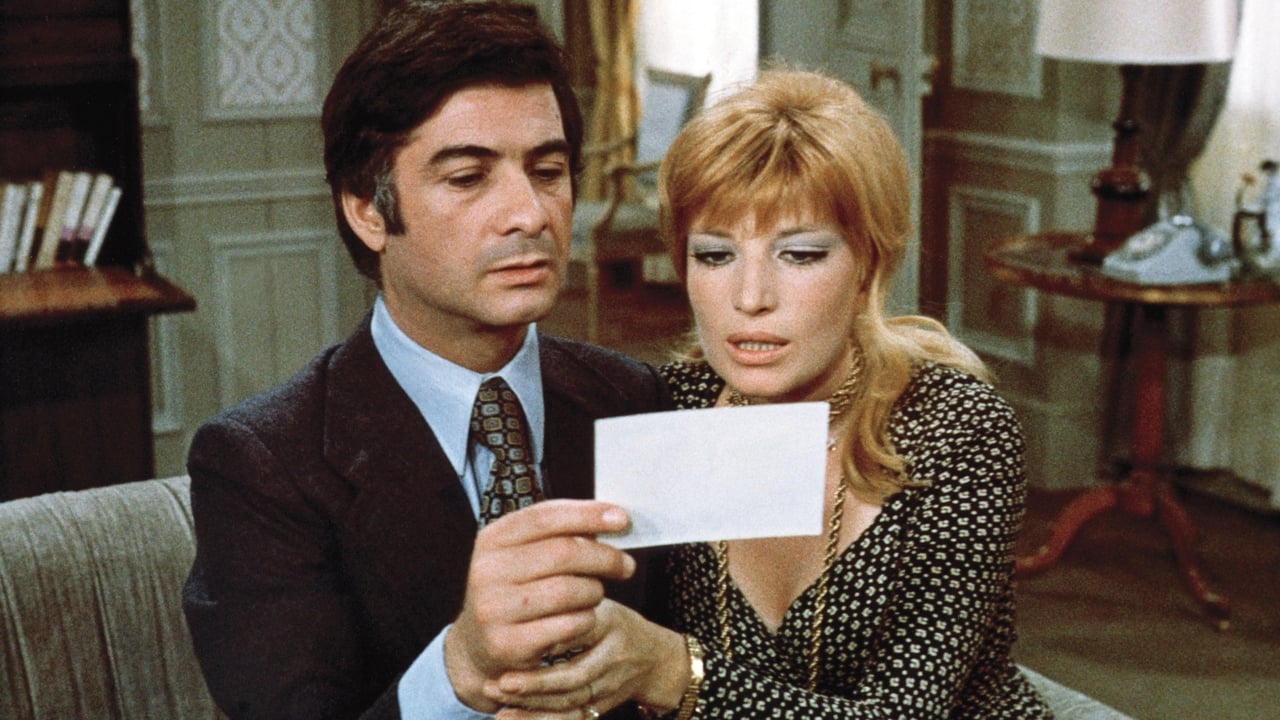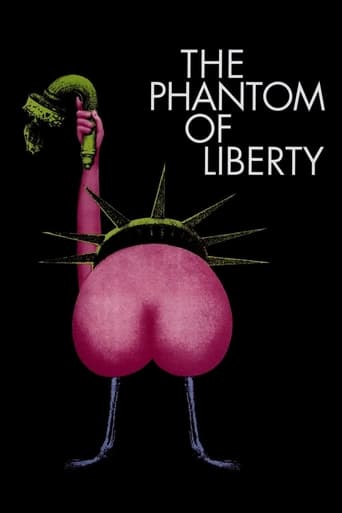

Very very predictable, including the post credit scene !!!
... View MoreHighly Overrated But Still Good
... View MoreOk... Let's be honest. It cannot be the best movie but is quite enjoyable. The movie has the potential to develop a great plot for future movies
... View MoreA film of deceptively outspoken contemporary relevance, this is cinema at its most alert, alarming and alive.
... View MoreLuis Bunuel's late run of films is one of my favourite streaks by any filmmaker - I don't know that anyone else ever achieved such sustained, unmediated self-expression, marked by such unfussy cinematic elegance. The Phantom of Liberty is a consistent astonishment, fundamentally a loosely-linked collection of sketches, all of which challenge some aspect of convention or perception - in its most famous bit, the guests at a dinner party sit on lavatories around the table and discreetly absent themselves to eat in private. Its sequences subtly vary in their relationship to reality: in some cases providing a relatively simple reversal of expectations (the "dirty pictures" revealed as mere tourist postcards); in others savagely firing at religious sanctimony (monks who embrace booze, smokes and poker but recoil from sexual display); in others suggesting a mass breakdown in perception (a little girl who everyone counts as disappeared, even as they acknowledge her continuing presence); an episode involving a call from a dead sister gives the dislocation a psychic dimension. The film belongs securely to the living rooms and fancy offices of the bourgeoisie, except that suddenly Bunuel shows us a mass shooter gunning down random victims, and we're dropped into real streets and markets and cafes, into real disruption (of a kind of course that doesn't seem dated at all), and it's clear how the film isn't just a semi-affectionate ribbing, but rather a suggestion of a malaise spreading out from the establishment, a toxic discharge from so much self-absorption and self-congratulation and under-examined reliance on hypocritical moral precepts, of a kind that brings us down whether we know it or not (the film's most pointed political dialogue actually addresses the environmental consequences of increasing population). Phantom doesn't feel revolutionary or anarchic - it's too comfortable with its settings and people for that - but it's never complacent, wondrously ventilated by Bunuel's timeless assurance.
... View MoreWatching The Phantom of Liberty is unlike any other film-watching experience. Buñuel presents a series of seemingly unrelated vignettes woven together by mere chance or coincidence. Just as Buñuel develops a character beyond their name or title, he whisks the viewer away to focus on another character and their experience. The film not only employs dream-logic through its surrealist mise en scéne, the film also has the pacing of a dream. Like the series of half- remembered dreams we have each night, each vignette leaves a vague impression of itself after its viewing; not to be consciously understood, yet its presence can be felt with each following scene. While there are core thematic ideas woven throughout the film regarding political and social satire, on first viewing it is hard not to get lost in the dreamy surreality of real-life that Buñuel so eloquently portrays in his 1974 masterpiece.
... View MoreThe Phantom of Liberty is an unusual film one that does not really "fit in" with the rest of the crowd, but that is what makes it brilliant. This Film was certainly mind boggling as I found it interesting on how Luis Buñuel formed a smooth link from one scene to the next. The way the film was laid out was not the only unusual thing about it, but also the way each scene was portrayed everything you would see was out of the ordinary . I sat there thinking to myself , "what is going on here?" it was as if this was filmed in a parallel universe were people lived by different rules we are not accustomed to. From having the dead calling the living, the use of the bathroom was a dining table experience shared with others, and where being sentenced to death would result in in freedom and fame. Sure the scenes certainly sound unbelievable somehow that is where Buñuel worked his magic. As he not only allowed me to flow easily from scene to scene, but also in a way took me away from reality stopped me from asking all these questions , and just allowed me to accept what was going on and go with it . It gave me a view of possible "why not" situations in life that one can imagine . I really enjoyed this film and I'm looking forward to finding others like it in the near future.
... View MoreThe Phantom of Liberty movie show to me how important surrealism is in order to make a movie successful. It really made me feel that I was leaving it while it was been played, but also it goes beyond reality because in the scenes what the characters where doing was something unexpected, weird, not normal, or perhaps disrespectful if someone sees it that way. Moreover, we're not used to lived that way. We see the world differently and we manage personal y private things differently. In fact what really catch my attention was the scene where they all sit together to "eat". It wasn't really like that, it was the opposite, they suppose to eat instead of doing their needs. That really make laugh in a way because I can't imagine myself doing that. In other hand, The phantom of Liberty was really a piece of art even thought it got me kind of confuse. This is a film where you can start asking question to yourself and building all this thoughts and ideas. This is where you can see a real director, art and high level of thinking of Buñuel.
... View More